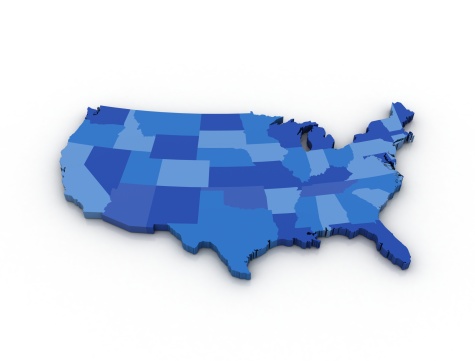Leadership is Leading the Way
 “Complaining is not a strategy.”– Jeff Bezos, Founder and Chief Executive Officer, Amazon.com
“Complaining is not a strategy.”– Jeff Bezos, Founder and Chief Executive Officer, Amazon.com
It’s no secret that the insurance benefits industry is rapidly changing, probably at the fastest rate in its history. United Benefit Advisor’s Chief Executive Officer, Thom Mangan, has been outspoken about the fact that advisors who don’t keep up with the changing benefits industry will quickly get left behind. Mangan is often recognized for his drive to stay one step ahead of the game and was recently honored with the CEO Leadership Award from the Institute of HealthCare Consumerism (IHCC) as a result of his leadership in this area. In this brief interview with the IHCC, he shares his thoughts on the future.
IHCC: In your view, how is the world of the health benefits advisor changing?
Mangan: Clients are no longer looking for a transactional insurance agent but a consultative advisor. The advisor must have tools and resources such as claims analytics, benchmarking data, national footprint and compliance resources in order to stay in business.
IHCC: What are you hearing are the biggest obstacles for benefits advisors going forward?
Mangan: Access to resources needed to remain relevant.
IHCC: Where are the greatest opportunities for advisors going forward?
Mangan: Those who invest in their business will succeed beyond the level they are today while those 90 percent who do not will die a quick death. An advisor can no longer be a generalist in insurance, but must have a “Ph. D.” to drive to the next level.
IHCC: What opportunities can a smaller benefits advisor firm — one that may be a UBA Partner — provide for an organization over a larger, multinational firm?
Mangan: Health insurance is a local choice dealing with local business. UBA Partner Firms have real people in more than 250 communities across the nation who can make changes at the speed of a PT boat versus a national advisor who moves at the speed of an aircraft carrier.
IHCC: What trends in health care and employee benefits are you currently most “bullish” about?
Mangan: The more complex the federal government makes health insurance, the more valuable a modern advisor becomes to their clients.
IHCC: How has the Patient Protection and Affordable Care Act (PPACA) impacted the benefits advisor field? How has UBA helped advisors in this area?
Mangan: Clients have been looking to their advisor to provide guidance regarding PPACA. Unlike most advisors who just forward carrier information or articles, UBA has a group of nine ERISA attorneys who generate relevant information quickly for the 40,000 employers that are clients of UBA Partner Firms.
IHCC: In your view, what are some of the most interesting or relevant points from this year’s Health Plan Survey?
Mangan: 2013 is the calm before the storm. While the past two years have shown renewals of 4 percent and 5 percent respectively, 2014 is a headwind that will turn out to be a hurricane. Where the Northeast annual cost per employee per month is $10,808 those in the Southeast are $7,846. Most of this pricing is based around plan design. In 2014, PPACA will force employers to offer much richer health plans in the rest of the country which will raise the rates for the lower cost areas anywhere from 20 percent to 60 percent.
IHCC: How would you describe your overall vision for UBA going forward?
Mangan: Having been a part of this industry for more than two decades, this, to me, is one of the most exciting times in history, with great opportunities ahead. For example, UBA just launched two new private health insurance exchanges – Benefits Passport® and benefitbay™ – which are part of UBA’s continued innovation. There is much more to come and the excellent people who make up UBA are leading the way. I’m honored to be a part of this organization.


 Delay, delay, delay … Error, delay, repeal. That seems to be the trend with health care reform, but it doesn’t mean employers are exempt from compliance in 2015 or the requirements that remain in effect for 2014 under the Patient Protection and Affordable Care Act (PPACA).
Delay, delay, delay … Error, delay, repeal. That seems to be the trend with health care reform, but it doesn’t mean employers are exempt from compliance in 2015 or the requirements that remain in effect for 2014 under the Patient Protection and Affordable Care Act (PPACA). 
 Health care reform and the shift towards a defined-benefits model have moved voluntary benefits from the fringes of corporate benefit plans into the spotlight. Skyrocketing costs and ballooning compliance duties have pushed more employers to a tipping point, and companies are slashing or eliminating their medical plans. Those shrinking benefits, though, can crush a company’s ability to recruit and retain a top-notch workforce. To remain competitive, many employers are turning to ancillary (voluntary) products as a way to lighten the impact of reduced health care coverage and to broaden the overall appeal of their compensation package.
Health care reform and the shift towards a defined-benefits model have moved voluntary benefits from the fringes of corporate benefit plans into the spotlight. Skyrocketing costs and ballooning compliance duties have pushed more employers to a tipping point, and companies are slashing or eliminating their medical plans. Those shrinking benefits, though, can crush a company’s ability to recruit and retain a top-notch workforce. To remain competitive, many employers are turning to ancillary (voluntary) products as a way to lighten the impact of reduced health care coverage and to broaden the overall appeal of their compensation package.
 The IRS does not consider the availability of the health exchanges/marketplaces a change in status event that would allow an employee to make a mid-year change under a Section 125 plan. However, the IRS has said that it will allow an employer with a non-calendar year plan to amend the plan to allow employees to make mid-year election changes to move from the plan to the marketplace, to allow employees who previously declined coverage to enroll in the plan as of Jan. 1, 2014, or both. (Because coverage purchased in the marketplace will be effective Jan. 1, 2014, calendar year plans should not have this issue.) There had been some question about whether this option was only available to large employers; the IRS has now clarified that employers of all sizes may amend their plan to allow for mid-year changes because of the new marketplace coverage.
The IRS does not consider the availability of the health exchanges/marketplaces a change in status event that would allow an employee to make a mid-year change under a Section 125 plan. However, the IRS has said that it will allow an employer with a non-calendar year plan to amend the plan to allow employees to make mid-year election changes to move from the plan to the marketplace, to allow employees who previously declined coverage to enroll in the plan as of Jan. 1, 2014, or both. (Because coverage purchased in the marketplace will be effective Jan. 1, 2014, calendar year plans should not have this issue.) There had been some question about whether this option was only available to large employers; the IRS has now clarified that employers of all sizes may amend their plan to allow for mid-year changes because of the new marketplace coverage.
 On Sept. 13, 2013, the IRS issued details on permissible health reimbursement arrangements(HRAs), providing some clarification on minimum essential, minimum value and affordable coverage, and addressing payment of individual premiums through an employer-provided plan.
On Sept. 13, 2013, the IRS issued details on permissible health reimbursement arrangements(HRAs), providing some clarification on minimum essential, minimum value and affordable coverage, and addressing payment of individual premiums through an employer-provided plan.
 Peter Freska, CEBS
Peter Freska, CEBS
 Mike Humphrey
Mike Humphrey
 We’ve had a lot of employers request a simple, at-a-glance way to see all the PPACA requirements that apply to their business. This is no easy task given group size, SHOP exchanges and self-funding variables! Let’s just look at a few provisions that are effective for the plan year beginning on or after 1/1/2014:
We’ve had a lot of employers request a simple, at-a-glance way to see all the PPACA requirements that apply to their business. This is no easy task given group size, SHOP exchanges and self-funding variables! Let’s just look at a few provisions that are effective for the plan year beginning on or after 1/1/2014:
 States have two major decisions to make with respect to the Patient Protection and Affordable Care Act (PPACA) – whether they will run the health exchange themselves, and whether they will expand Medicaid to cover most individuals whose income is below 133 percent of the federal poverty level.
States have two major decisions to make with respect to the Patient Protection and Affordable Care Act (PPACA) – whether they will run the health exchange themselves, and whether they will expand Medicaid to cover most individuals whose income is below 133 percent of the federal poverty level.